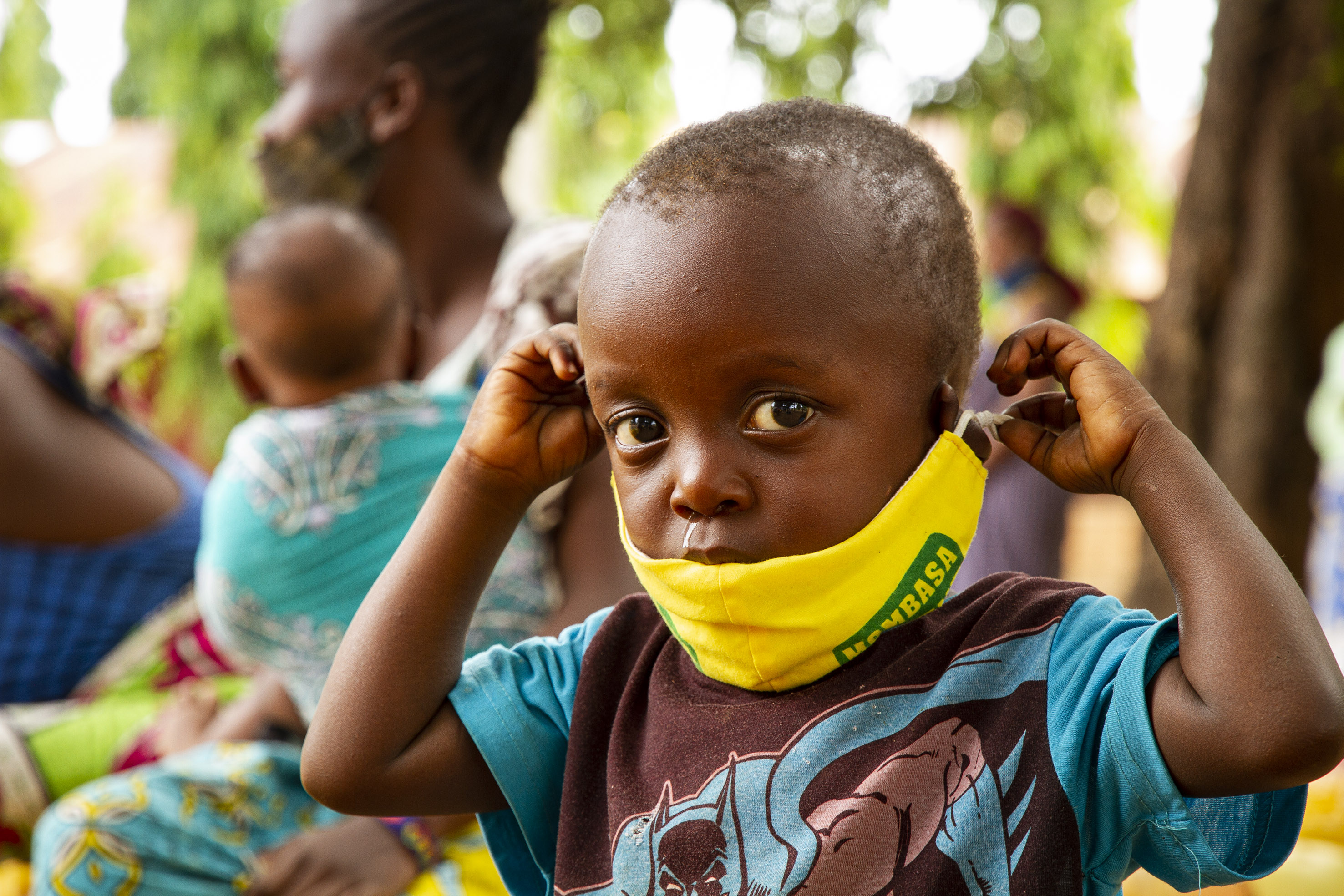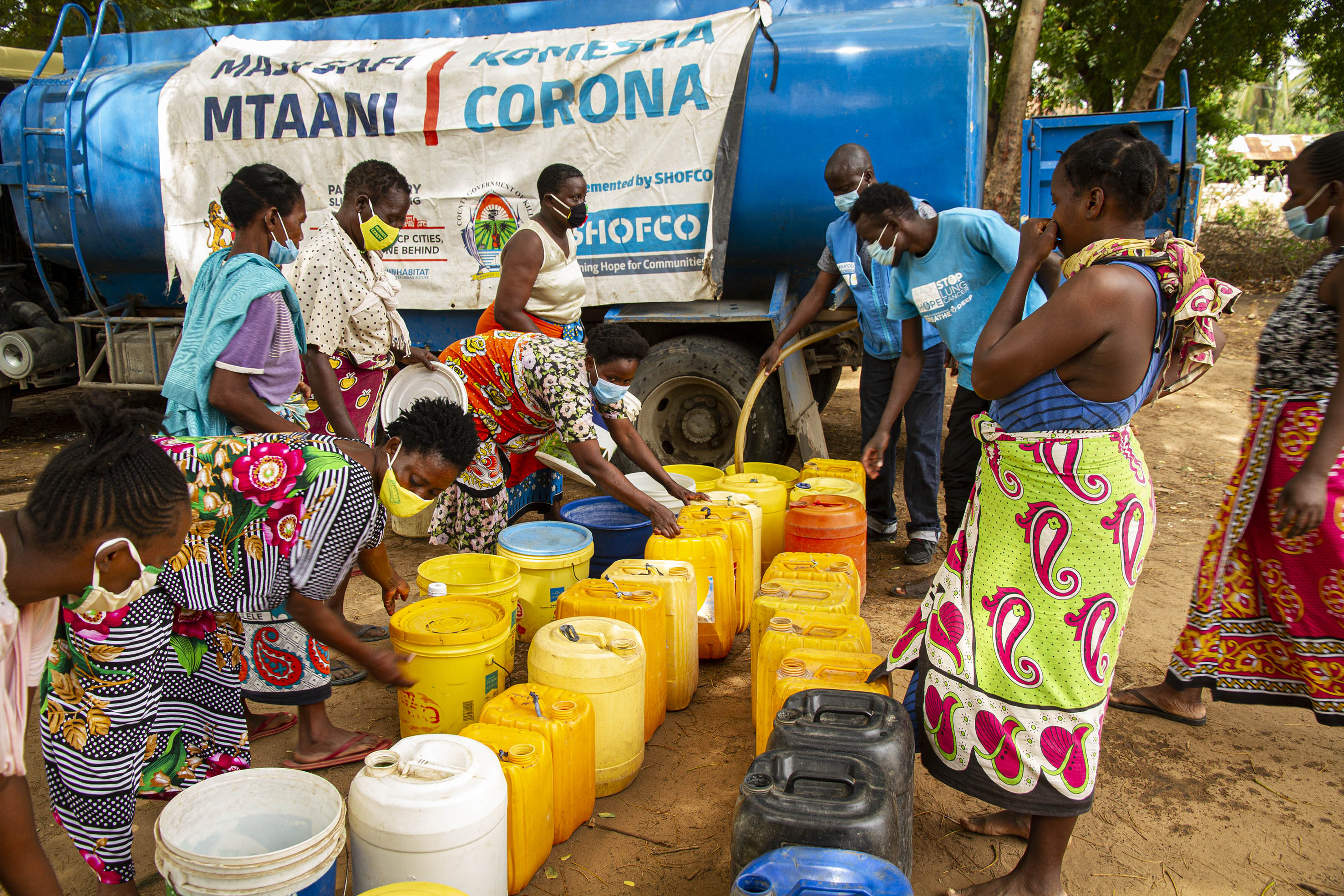Mtwapa, Kenya, 24 March 2021 - "We have distributed soap everywhere," says Mishi Rama Mbete. The 48-year-old is sitting on a cardboard box in front of her mud hut, her hands folded in her lap. She wears the face mask correctly over her mouth and nose. "Corona is a terrible disease that has no cure yet. We are the medicine, our behaviour is, like when we wash our hands many times a day." Mbete is one of 30 Community Health Volunteers from the informal settlements of Majengo and Mzambarauni who, on behalf of Participatory Slum Upgrading Project (PSUP) and its collaborative partner, the Community-based Organization Shining Hope for Communities (SHOFCO), tackled the initial stages of the COVID-19 outbreak, going door-to-door for weeks in awareness campaigns. She, among others, distributed hand sanitizers and soap, explaining the importance of washing hands properly, wearing a facemask, keeping social distance when possible, and recognising the symptoms of COVID-19 in time. Suspected cases of infections were referred to government facilities for further tests and follow-ups.
The awareness campaign is part of an emergency response package that PSUP and SHOFCO launched at the onset of the Corona outbreak in Kenya in March 2020. The aim, from the very beginning, was to prevent a looming disaster in the slums. No one was to be left behind during the pandemic. Together with the County Government of Kilifi and the communities in the PSUP project region, both partners set up 20 handwashing stations, maintained by men and women from the communities for a small additional income, to protect local people from the virus. The Community Health Volunteers were trained by the County Government's Department of Health to use their expertise to conduct education and provide up-to-date emergency assistance. “On the county level, we have set up a huge network of Community Health Volunteers, who are operational within the communities”, says Mr. Charles Dadu Karisa, County Executive Committee Member for Health Services in Kilifi. “Our Department trained a total of 210 volunteers who operate in the Mtwapa region. Masks were distributed and handwashing stations and emergency hotlines were set up.”

One of the most important measures included the delivery of free clean water. Although the affordable drinking water supply established by PSUP in 2016 through the water kiosks in Majengo and Mzambarauni was extremely helpful at the beginning of the Corona crisis, during the course of the pandemic it became far from sufficient due to the additional demand. Therefore, many hundreds of thousands of liters have been distributed by the SHOFCO team on behalf of PSUP to the informal settlements around Mtwapa by the end of 2020, up to 30,000 liters per day. For the people in the smaller villages around the project region, the water has been a blessing, as many have lost their jobs due to Corona and are dependent on food donations. "Many people cannot buy additional water, soap or a face mask with the little money they currently have left to live on," says Mbete.
The prevention measures of PSUP and SHOFCO have now reached more than 70,000 beneficiaries. Many more people will benefit in the future, and the community of Majengo and Mzambarauni should continue to participate, as is the declared goal of both partners. Mbete wants to continue to serve as a health volunteer. She is committed to resuming door-to-door outreach. "It's important that we do this on an ongoing basis. People are becoming careless, not wearing the masks anymore or at the very most under the chin, and not keeping safe distances from each other." That's already frustrating, she said, after all, the pandemic isn't over yet.

It is PSUP’s priority to continue to support communities in driving initiatives, creating incomes and empowering communities to grow and engage together. For example, women's groups in both villages have produced liquid soap at low cost, which they have sold locally and provided to the handwashing stations. In addition, men, women and youth have become engaged as handwashing station attendants and run the water kiosks, earning an important extra income. This priority is shared by the County Government. “Capacity building within the communities is essential”, says Karisa. “We are again reminded by the pandemic that it is unconditional to include informal settlements as part and parcel of our urban human settlement fabric.” Self-reliant, well-integrated, and strengthened communities are the best answer to any crisis. Read more